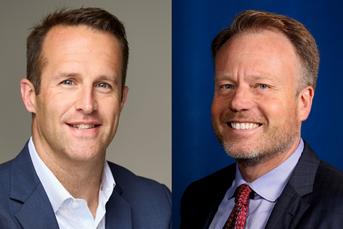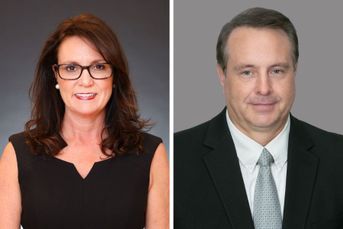Working with autism, from experience

Autism comes with challenges in a business that centers on relationships, but it often linked with an extreme interest in topics people are passionate about.
Few people understand special-needs financial planning as well as Andrew Komarow, whose Connecticut-based firm, Planning Across The Spectrum, specializes in the area.
Most of the staff at his practice are neurodivergent, and Komarow, himself autistic, has firsthand experience of being under guardianship.
“I had this happen at the choice of being homeless at 18 or checking myself into a facility. This was because when I turned 18, I was passed from one agency to another, with no planning in place,” Komarow said in an email following a phone interview. “Of course, [guardianship] can be removed, but that is a hard process. Many times, young adults are exactly that, young adults. And you should assume competence first, always.”
Autism comes with challenges in a business that centers on relationships, but it is often linked with an extreme interest in topics people are passionate about.
“I like solving problems. I like figuring out ways to come up with solutions,” Komarow said. “It’s what I love to do. For me, it’s not work … I get paid for people to ask me questions about my favorite subject.”
Because of their communication style, people with autism can come off as blunt compared with others, but that honesty can also be a valuable quality in a financial adviser, Komarow said. But it’s also a difference that can make it difficult to pick up on subtleties or office politics, he noted.
“A lot of us don’t like the phone,” he said. Email can be a preferred way to communicate.
“I’m sensitive to light,” Komarow added. “I can do Zoom, but I have tinted glasses, [and] the lights are dimmed in my office.”
Workers who have autism can be among the most dedicated a company can have, but not many employers have factored autism or other differences into their diversity hiring initiatives. Unemployment rates for people with autism are pegged at 80% or higher by most estimates.
“My favorite thing I’ve been doing is working with employers who like hiring individuals who are neurodiverse,” Komarow said. That includes ensuring that benefits packages don’t inadvertently discourage people from accepting jobs for fear of becoming ineligible for Medicaid or other government assistance they receive. Tailoring benefits to include transportation or other necessities can help, he said.
Some employers have been vocal about actively recruiting autistic workers. That’s a positive step, but Komarow said he hopes that prospective employees don’t feel that they are limited to working with those companies, as they can be well-suited to positions at most businesses.
His firm provides free job coaching, including for those who can’t afford to be paying clients, he said.
“We don’t turn away people who need help,” Komarow said. “We will have 10 or 15 minutes — we will find a resource to point them in the right direction.”
Learn more about reprints and licensing for this article.








